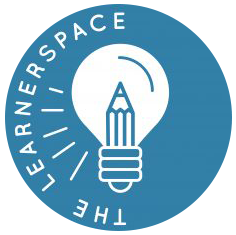As the years go by, we find ourselves amidst a world that becomes increasingly complex. The fast paced changes, technological innovations that defy our very perceptions and the almost schizophrenic rhythm of contemporary life all conspire to present us with a challenge that is simultaneously both fascinating and tantalizing: how to educate our students for a future that is as uncertain and unsettling as promising in its understated hint of a new enlightenment.
In that respect, transcending pedagogy and technique, and regardless of terms and buzzwords that only add false sophistication to a simple and profound truth, the goal of education has always been to try to help children rise up to their full potential. From the ancient masters to the modern day technology-enriched environments, the education we would all want for our own children is one that allows them to find success, meaning and happiness.
Like any order of activity, education has evolved throughout time in developing a set of tools and techniques that have progressively nudged teachers towards a set of collective expectations regarding the way the ancestral art of teaching should be conducted in schools. With the sudden (in historical terms) advent of the Internet, which completely redefined the basic tenet of limited knowledge towards being the first generation in history to have access to all accumulated human learning, all of us educators have been forced to re-examine profoundly they way we do things. The new knowledge paradigm has shaken us out of our mechanical reverie of building up layer upon layer of pedagogical constructs and theories.
At this point, when the trend for a global, interconnected, collaborative world of open knowledge is irreversible, there is wide consensus in most school systems, irrespective of age level and geographic location, that as we reassess our practice through this renewed prism, we are finding some substantial disconnects with our stated and well-intentioned purpose of getting the best out of our students.
Even though all generalizations are unfair and the truly great teachers have always found a way to beat the incumbent bureaucracies and system wide constraints, we now need to come to terms with the painful realization that our industrial-age education has unintentionally somewhat cheated our students out of their true destiny and identity.
Authors, thinkers and educators alike now understand that:
- An obsession with standards has resulted in a one-size fits all pedagogy that has paid little or no attention to individual learning styles and multiple abilities.
- An exacerbated focus on fixed outcomes for academic success has led to an environment that has privileged testing over learning, thus implicitly conveying the message that results and not the process are all that matters.
- Thinking of ourselves as indispensable to learning, we have, in the words of the author Parker Palmer “forced students to be passive stenographers of the teacher’s store of knowledge, leaving the teacher with more sense of selfhood and the vulnerable students with less.”
- In the name of accountability, a self-fulfilled prophecy of rewards and punishments has identified students’ sense of worth with their numeric marks, stigmatizing mistakes, resulting in so many students who would much rather be labeled as lazy than as failures.
- Trying to conform to univocally utilitarian societal expectations, we have expected all of our children to fit the same mold and have standardized our curriculum to relegate art, sports, music and drama to elective or extracurricular status.
- An eminently judgmental stance has resulted in irreparable damage to the most precious and valuable of character traits in many of our children: their fragile sense esteem.
- We have been so preoccupied with perfecting our teaching that we almost forgot that we are all learners at heart.
Fortunately, this still young information age has provided us with a harsh wakeup call that is driving us to reassess our priorities and our methods. The new paradigm of infinitely abundant knowledge has become a blissful catalyst to help us rediscover why we still choose to be educators:
- We now understand that each and every child has the right to learn and that our job, in the immortal words of Michelangelo, is just to peel off the layers, to “carve out the angel in the stone and set it free”.
- We finally have accepted that assessment should provide valuable feedback for the learning process and help all students achieve success.
- We realize that we need to slowly step away from center stage and provide our students with the skills and, more importantly, with the motivation to learn for life, which they will be able to do.
- We are trying to view all that happens in school as valuable and meaningful learning opportunities, in and out of the classroom.
- We are so much more aware that life is collaborative and interconnected and no longer isolated and individual, and that our pedagogy must evolve so that collaborative work is the norm and not the exception.
- We welcome the latest neuroscience research that, amongst other findings, confirms our deep belief in that intelligence and other hitherto considered fixed talents can, indeed, be grown.
- We are slowly learning to accept and embrace change as the quintessential driver for learning, and, as such, gradually losing our fear in the process.
- We are also willing to accept the ultimate challenge, that although we have a job as teachers, our most important role is to inspire.
Even as we struggle with the extent and magnitude of the change needed, we are overjoyed at that this, the best time in history to be educators, has given us a much needed breath of fresh air and rekindled our passion for this most noble of professions, a call that we now embrace with renewed optimism and deeper motivation.

